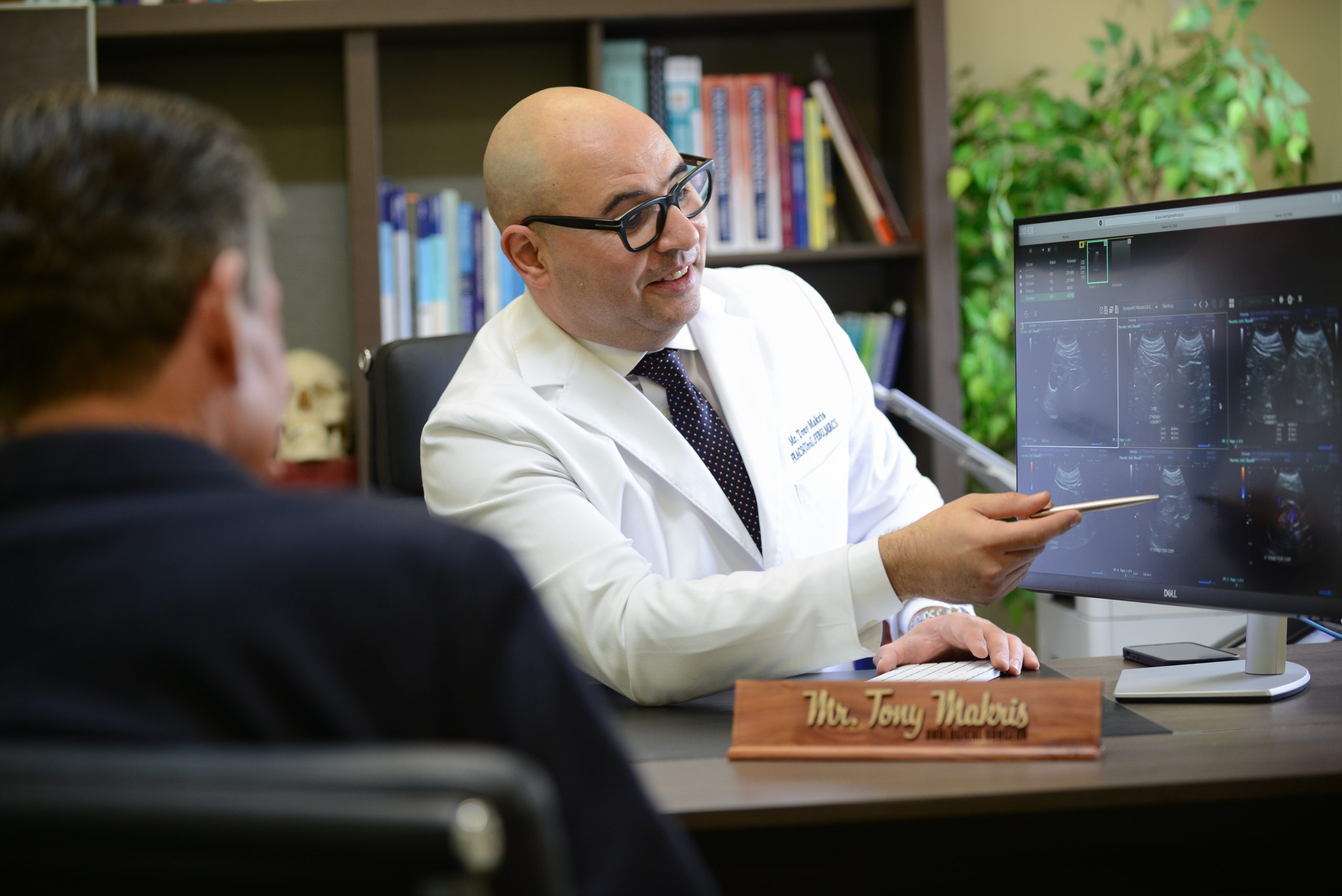TENS for chronic testicular pain
Transcutaneus electrical nerve stimulation (TENS)
Transcutaneous electrical nerve stimulation (TENS) is a non-invasive treatment for chronic testicular pain. Dr. Tony Makris is a specialist urologic surgeon with extensive experience in TENS, offering the treatment through Paradigm Urology.

What is transcutaneous electrical nerve stimulation?
Transcutaneous electrical nerve stimulation (TENS) uses low-voltage electrical currents to achieve pain relief. The TENS machine delivers electrical impulses via electrodes which are placed on the skin near the nerves which supply the painful area.
How does TENS work?
The two most accepted theories about how transcutaneous electrical nerve stimulation works are:
- The electric current blocks the transmission of pain signals, modifying your pain perception.
- Nerve stimulation raises the levels of endorphins, which your body produces naturally to fight pain.
Chronic testicular pain
Chronic testicular pain can be debilitating and is very difficult to treat. It is defined as a constant or intermittent pain in the scrotum lasting for more than 3 months. It can be caused by a variety of pathologies, and may be associated with vasectomy procedures ("the snip"). Some studies have shown an average incidence of 15% associated with vasectomy.
However, chronic testicular pain is often idiopathic (meaning the cause is unknown).
What to expect form TENS treatment for chronic testicular pain?
Up to 4 electrodes are placed on the groin region and your lower back. These are adhesive gel pads (not needles) which are connected to the TENS machine. The stimulator is then turned on and then the ideal strength of the electric impulse is determined.
You will feel a slight tingling sensation pass through your skin. The strength of the electrical impulses can be adjusted; we will start on a low setting and gradually increase it until the sensation feels strong but comfortable.
Each treatment session typically lasts 30-45 minutes. You will initially require a series of 4 treatments over 4 weeks; after this, Dr. Makris will discuss your response and determine if you require future treatments.
What are the risks and complications?
The treatment is usually very well tolerated and there are no major safety concerns associated with it. Some patients may be allergic to electrode's adhesive or the fabric it is made of (the skin may appear red, irritated, or a rash may break out). Others may be sensitive or feel uncomfortable with the tingling sensation generated by the TENS unit; the intensity of the stimulation can be regulated to make it as comfortable as possible.